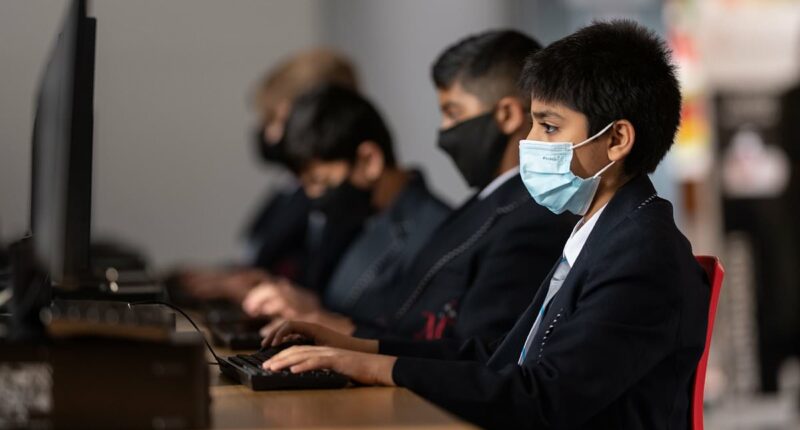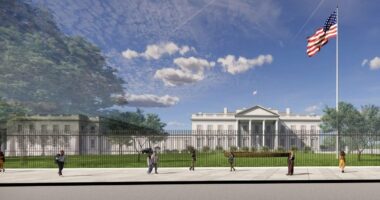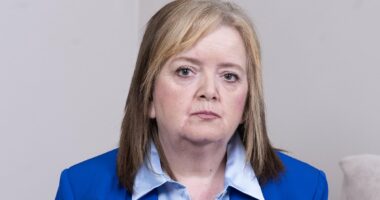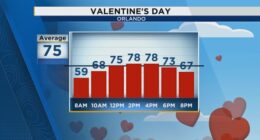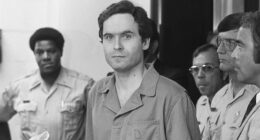Share this @internewscast.com
A scathing official inquiry has concluded that stringent COVID-19 lockdowns abruptly halted childhood, with devastating consequences. Released yesterday, the report highlights how young lives were deeply affected, despite most children being largely unaffected by the virus. Their educational and personal development were sacrificed to protect older generations.
In her critical assessment, Baroness Hallett, chair of the COVID-19 Inquiry, emphasized that the decision to close schools and nurseries in early 2020 was driven by a need to safeguard adults. This decision effectively paused normal childhood activities and experiences.
Baroness Hallett stated, “For the majority of children, being unable to attend school, see friends, or leave home had significant ramifications on their lives.”
As a result, teachers and parents are now facing challenges as children struggle to meet developmental milestones, a lingering impact from the unprecedented shutdown of 2020.
This landmark report by Lady Hallett sheds light on the far-reaching effects of the pandemic, painting a stark picture of its toll on the younger generation.
In a landmark report into the devastating effects of the pandemic, Lady Hallett concluded:
- Tens of thousands who died from Covid could have been saved if the lockdown had been imposed seven days earlier;
- The lockdowns of 2020 and 2021 could have been avoided altogether;
- Scientists, civil servants, ministers and the devolved governments all failed to react fast enough;
- Britain could have escaped the Covid devastation, but ministers did ‘too little, too late’;
- No 10 adviser Dominic Cummings was a ‘toxic’ and ‘destabilising influence’ as Downing Street grappled with the crisis;
- Boris Johnson ‘should have appreciated sooner that this was an emergency that required prime ministerial leadership’.
Last night Jacob Rees-Mogg, who served in the Cabinet throughout the pandemic, said the inquiry was right to conclude that children had been let down.

Year eight boys wear face masks at Moor End Academy in Huddersfield on September 11, 2020
He told the Daily Mail: ‘My view was that once we knew that children were at no risk from Covid we had no right to stop them socialising.
‘It would have been much more sensible to allow the vulnerable to shield themselves and allow children to lead normal lives.’
Speaking to reporters on the plane to the G20 in South Africa last night, Sir Keir Starmer said: ‘We are taking measures to make sure that, not just the NHS but the Government as a whole, is prepared for any number of eventualities because we have to learn the lessons of Covid and that’s why we’re looking very carefully at the report.’
On March 18, 2020, the Government closed schools to most pupils, as part of nationwide lockdown measures.
Lady Hallett, a former Appeal Court judge, who has interviewed scores of ministers and civil service mandarins over two years, concluded in a 760-page report: ‘The vast majority of children were not at risk of serious harm from Covid-19.
‘The decisions to close schools, and early-years provision, to most children, and to implement a lockdown, were steps taken to protect the adult population.
‘They brought ordinary childhood to a halt.
‘For most children, the closure of schools, the inability to see friends and the requirement to stay at home were of profound consequence.’
The decision to close schools in 2020 – leaving huge numbers of working parents to school their children at home while holding down their own jobs – served to reduce Covid cases by as little as 10 per cent, according to Professor Patrick Vallance, the chief scientific adviser.
Professor Sally Holland, former Children’s Commissioner for Wales, said that ‘if the opportunity to develop early skills is lost, it may be difficult to recover’.
Lady Hallett said: ‘No government in the UK was adequately prepared for the sudden and enormous task of educating most children in their homes or for meeting the challenges and risks [lockdown] presented.
‘None had envisaged or prepared for the potential, complex ramifications of school closures on children’s lives.’
The ‘drastic interference’ put ‘children at risk of harm’, she added.
Covid was the most momentous event in UK history since the Second World War, with millions ordered to stay at home during the series of lockdowns.
Lady Hallett said: ‘Had the UK been better prepared, fewer lives would have been lost, the socio-economic costs would have been substantially reduced and some of the decisions politicians had to take would have been far more straightforward.
‘While the nationwide lockdowns of 2020 and 2021 undoubtedly saved lives, they also left lasting scars on society and the economy, brought ordinary childhood to a halt, delayed the diagnosis and treatment of other health issues and exacerbated societal inequalities.’
The inquiry chairman blasted officials and politicians for their glacial reactions as the deadly disease spread from China in January 2020.
She described February that year as ‘a lost month’ in which the UK could have made preparations that would have saved tens of thousands of lives.
Delay cost 23,000 lives …claims Prof Lockdown
- ‘Groupthink’ scientists told ministers to back off curbs
- Hancock ‘overpromised and underdelivered’ to No10
- …and analysis of the effect on economy was inadequate
Explosive claims by the Covid inquiry that 23,000 lives were lost because of a one-week delay raised eyebrows last night.
Baroness Hallett stated in her executive summary that if the national lockdown had been imposed on March 16, 2020, instead of seven days later when it was actually implemented, the devastating death toll from the first wave could have been halved, according to ‘modelling’.
However, buried on Page 211 of her 760-page report, it reveals this estimate is based on analysis by ‘Professor Lockdown’ Neil Ferguson, the Imperial College academic whose terrifying predictions spooked Boris Johnson into adopting the draconian restrictions.
Professor Ferguson, who quit as a Whitehall scientific adviser after being caught breaking social-distancing rules to meet his married lover, later faced claims from other epidemiologists that his dire warnings were overblown.

Covid signs are seen on the closed gate of a primary school in East London on January 3, 2021
Among the conclusions in her damning report, Lady Hallett, the chairman of the £200 million Covid inquiry, found:
Lockdowns might have been avoided
The devastating lockdowns of 2020 and 2021 could have been avoided altogether if only the government had responded to the pandemic sooner.
Lady Hallett said the first lockdown, which started on March 23, 2020, ‘might have been shorter or not necessary at all’ if restrictions such as self-isolating and social-distancing had been brought in earlier, even by a week.
She concluded that the repeated lockdowns left ‘lasting scars on society and the economy’, brought ordinary childhood to a halt and delayed the diagnosis and treatment of other health issues.
Government acted ‘too little, too late’
Lady Hallett said that by the time a lockdown was considered, ‘it was already too late’, adding it ‘only became inevitable because of the acts and omissions of the four governments’.
Politicians had made decisions ‘in conditions of extreme pressure’ but ‘nonetheless, I can summarise my findings of the response as ‘too little, too late’.’
She said that No 10, as well as the devolved governments of Scotland, Wales and Northern Ireland, had all ‘failed to appreciate the scale of the threat or the urgency of response it demanded’.
Lady Hallett said: ‘None of the governments in the UK had adequately prepared for the challenges and risks of a national lockdown.’
Whitehall was so badly prepared for the virus that ministers were forced to take ‘tough decisions’.
Matt Hancock was ‘over-enthusiastic’
Then PM Boris Johnson was too slow and ‘should have appreciated sooner that it was an emergency that required prime ministerial leadership’, said Lady Hallett.
But he was hampered by the health department giving him false promises that they had the situation under control.
Former health department top mandarin Sir Christopher Wormald, now running the civil service, presided over ‘misleading assurances’ about the UK being prepared.
He also failed to rein in ‘overenthusiastic’ health secretary Matt Hancock, who kept ‘over-promising and under-delivering’ to No 10.
The inquiry chairman blasted officials and politicians for their glacial reactions as the deadly disease spread from China in January 2020.
She described February that year as ‘a lost month’ in which the UK could have made preparations that would have saved tens of thousands of lives. The overall lack of urgency overall in government was ‘inexcusable’.
She quoted Dominic Cummings blaming the Cabinet Office and health department who ‘weren’t banging alarm bells at this point – far from it, they were going skiing’.
Helen McNamara, former deputy Cabinet secretary, also said Mr Hancock had ‘nuclear levels of confidence’ which she described as a ‘problem’.
Scientists ‘advised delay on restrictions’
Lady Hallett pointed out that the scientific advice in early March 2020, from the Scientific Advisory Group for Emergencies (SAGE), including chief medical officer Sir Chris Whitty, had warned ministers not to introduce restrictions too early.
Their advice to ministers was that any premature lockdown measures would risk the public suffering ‘behavioural fatigue’.
She said SAGE suffered from ‘groupthink’, with dissenting voices failing to be heard: ‘The incorporation of multiple voices, including those with dissenting views, helps to build sufficient challenge into the advisory process and guard against ‘groupthink’.’

Baroness Hallett, chair of the Covid Inquiry, who has published her damning second report
‘Oscillating’ PM Boris Johnson
Later, when the second lockdown approached, Lady Hallett criticised Mr Johnson who ‘throughout September and October 2020, repeatedly changed his mind on whether to introduce tougher restrictions and failed to make timely decisions’.
She said the ‘weakness of the restrictions used and Mr Johnson’s oscillation enabled the virus to continue spreading at pace’.
Lady Hallett said: ‘Mr Johnson’s own failure to appreciate the urgency of the situation was due to his optimism that it would amount to nothing, his scepticism arising from earlier UK experiences of infectious diseases, and, inevitably, his attention being on other government priorities.’
Rule-breaking by ministers and advisers
The inquiry chairman also addressed the issue of rule-breaking by ministers and advisers, saying that the ‘very least the public should be entitled to expect is that those making the rules will abide by them’. She said several incidents, such as Mr Cummings’s trip to Barnard Castle and Mr Hancock’s affair, undermined trust in the government.
Treasury failed to assess economic impact
The report repeatedly condemns ‘significant concerns’ about the quality of economic modelling during the pandemic. The inquiry heard there was ‘no meaningful model’ of the devastating costs to the economy, unlike a large amount of scientific advice.
Lady Hallett said: ‘There was little evidence in each of the four nations of substantive economic modelling and analysis being provided to decision-makers. This inevitably hampered the ability of decision-makers to assess and balance relative harms.’
Confusing rules and disproportionate fines
Lady Hallett also took aim at confusing Covid rules and regulations.
She said there ‘was a growing public confusion regarding the numerous changes’ and even the police were baffled about enforcing fines.
She added that ‘frequent and complex changes to the rules’ undermined public trust, and Downing Street should have done more to ensure guidance reflected the law.
Vaccine success
Lady Hallett also praised Mr Johnson’s government, saying: ‘In December 2020, the UK was the first country in the world to approve a vaccine and commence a vaccination programme.
‘Authorisation for the Oxford/AstraZeneca vaccine swiftly followed on December 30 and the Moderna vaccine on January 8, 2021. This was a remarkable achievement and a decisive turning point in the pandemic.’
To inquiry officials any notion that the lockdowns were worse than the disease is inconceivable
COMMENTARY BY DANIEL HANNAN
The official inquiry into Covid-19 had made up its mind before it began. Its line of questioning presupposed that non-pharmaceutical interventions – masks, distancing, lockdown – were effective. The inquiry’s sole interest was in why the government did not impose them earlier.
Even before the first hearings, its prejudices were clear. When it started to call witnesses, it required them to take lateral flow tests before appearing.
This was in the summer of 2023, long after the rest of the world had accepted that Covid was a disease we must learn to live with – and with which we had already learned to live.
Sure enough, yesterday afternoon, in the hackneyed style which public bodies adopt when talking down to the rest of us, Lady Hallett’s team declared that the government had done ‘too little too late’.
The effectiveness of harsh government crackdowns was assumed rather than interrogated. Britain was, according to the inquiry, too slow to enforce social distancing in February 2020, too quick to lift restrictions that summer and too slow to reimpose them later in the year.

Chris Whitty, Boris Johnson and Patrick Vallance speak at Downing Street on March 3, 2020
At every stage, this interim report begs the question. The notion that the lockdown treatment might have been worse than the disease is, to the official mind, inconceivable.
The idea that Britain was unprepared for a pandemic has been repeated so often that it has become received wisdom.
In fact, we did have a plan, carefully worked out in cooler-headed times which provided for the gradual spread of the virus in a way that would prevent a spike, and so allow our hospitals to keep working.
In the event, that plan was junked after the publication of modelling by Imperial College, London.
In an example of what economists call ‘revealed preference’, the author of that report, Professor Neil Ferguson, was later caught breaching lockdown rules in order to keep a tryst with a lover, which suggests he might not have been as worried as he made out. By then, however, some newspapers and broadcasters were in full panic mode.
Why, they asked shrilly, had we not locked down in the way that Italy and France had? Why did Boris Johnson want to murder our grannies? Why were we letting people wander about the countryside?
What, you might ask, would have happened had we not been stampeded into lockdown?
Can we ever know whether our original plan would have worked? Actually, yes. Although we did not follow our own plans, Sweden did. The sensible Scandinavians took our carefully devised protocols and applied them more or less unchanged.
In other words, Sweden stuck to the British plan. It did not do ‘too little too late’. The Swedes did almost nothing aside from banning large meetings, urging the elderly and vulnerable to stay at home and asking everyone else to use common sense.
What was the result? At first, it was difficult to answer that question, because different countries measured Covid fatalities in different ways.
One clear measure, though, is the excess mortality rate, which can be calculated consistently across different countries. We know how many people died in any given nation over the previous three years and that gives us a rough estimate of how many should die the following year. It is the same measure everywhere. It can’t be faked. What do we find when we compare Sweden’s excess mortality rate to everyone else’s?
There are numerous studies, using methodologies which differ slightly from one another. Some show Sweden’s excess mortality rate across 2020 and 2021 being a bit lower than the European average, others show it being a lot lower, and one shows it being the lowest of all – which is to say that Sweden, on that measure, had the lowest Covid death rate.
Not a single ranking shows Sweden sticking out like a sore thumb with excess deaths – fear of which, of course, was the justification for imprisoning us all at home.
Yet the lockdown obsessives saw Sweden, not as a reason to change direction, but as a public relations problem.
In WhatsApp messages later leaked, the then health secretary, Matt Hancock, referred to the ‘f***ing Sweden argument and asked officials to supply three or four bullet [points] of why Sweden is wrong’. No consideration of whether it might have been right. That, sadly, has been the attitude of Official Britain ever since, up to and including this farce of an inquiry.
Decisions were made in 2020 on the basis of models. Made, I don’t doubt, in good faith, but made speculatively nonetheless.
Now that we have hard data instead of mere models, we should be asking only one question: did lockdowns work?
But we can’t bring ourselves to do it. The thought that we might have gone through so many indignities and agonies for nothing is too horrible to contemplate. Hence our amnesia about the direct cost of the closures.
We blame the Labour government – as we previously blamed the Tories – for inflation and tax rises.
Yet these things were the inescapable consequence of paying people to stay home for the better part of two years. And the direct economic costs are only the start of it.
Lockdown introduced millions of people who had never claimed benefits to the idea of living on handouts. The number of people claiming to be too sick to work rocketed.
Even among those still in employment, it is now considered outrageous to be asked to come to work regularly. Government employees, in particular, have made it clear that they will never return to the office full time, and their productivity is 7 per cent below where it was at the start of lockdown.
Then we come to the non-economic harms caused by closed schools, the end of human contacts and the emergence of lives led online. Overnight, parents went from urging their children to switch their screens off to telling them to switch them on and finish their school work. How many mental health problems were incubated during those claustrophobic months? How many conspiracy theories were hatched? How many screen addictions formed? How many teenage minds poisoned?
On some level, I think we know that we over-reacted. It is as if, waking with a bad hangover, we have a vague sense of having behaved foolishly, but can’t bear to think too hard about what we did.
Ninety-three per cent of us backed the first lockdown, 85 per cent backed the second and – incredibly – 71 per cent opposed Boris Johnson when he finally lifted the restrictions.
As one of the single-digit number of columnists who opposed the lockdown from the start, I am acutely aware of how many people have backdated their views, and deny that they ever supported the idea.
Rather than asking whether we played a part in making the country poorer, more pinched and more authoritarian, we look for a scapegoat. That much, at least, the inquiry is offering us. And at a cost of £200 million – which is somehow emblematic of what the lockdown did to our sense of fiscal probity from day one.
Lord Hannan of Kingsclere is president of the Institute for Free Trade
